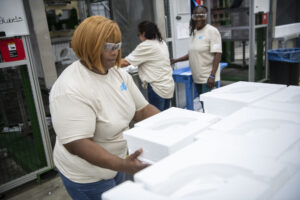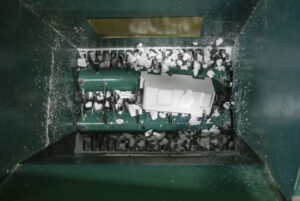In the dynamic world of packaging and logistics, Expanded Polystyrene (EPS) has emerged as a material of choice for protective packaging. There are various insights below into why EPS stands out as a superior option in safeguarding products during transit and storage.
What is EPS and Why Does It Matter?
Expanded Polystyrene, commonly known as EPS or foam, is a lightweight, rigid, plastic material derived from solid beads of polystyrene. Its unique properties make it invaluable for packaging solutions, especially when protection is paramount. But what makes EPS so compelling?
Why EPS is the Preferred Choice for Protective Packaging
The science behind this material revolves around its structure. Comprising 98% air, it is exceptionally light, reducing shipping costs while providing substantial cushioning. Its closed-cell structure offers excellent insulation and moisture resistance, two critical factors in protective packaging.
The material is also remarkably versatile, easily molded into various shapes and sizes, enabling custom-tailored solutions that meet specific packaging needs. This adaptability ensures that products, regardless of their dimensions, receive the protection they require.
EPS’s lightweight nature does not compromise its protective capabilities. It effectively absorbs shocks and impacts, preventing damage to goods during transit. This feature is particularly beneficial in industries where fragile items, such as electronics and glassware, require meticulous care.
Moreover, EPS is a cost-effective option. Its production process is efficient, keeping manufacturing expenses low without sacrificing quality. Businesses looking for an economical, yet reliable packaging solution often turn to EPS.

EPS in Temperature-Controlled Logistics
Beyond its protective attributes, EPS excels in insulation. Its thermal properties make it an ideal choice for temperature-sensitive shipments. Whether it’s preserving the freshness of perishable goods or maintaining the integrity of pharmaceuticals, EPS provides the necessary thermal protection.
For instance, in the food industry, EPS packaging is widely used to transport seafood, dairy, meal kits, and other perishables. Its ability to maintain consistent temperatures for a stable environment ensures that products arrive fresh and safe for consumption.
Similarly, in the pharmaceutical sector, EPS is essential for protecting temperature-sensitive medications and vaccines during shipment. Its outstanding insulation performance ensures a dependable cold chain, reinforcing the material as a trusted solution for critical healthcare logistics.

The Environmental Impact of EPS
At EFP, we are acutely aware of the environmental considerations surrounding packaging materials. EPS has often faced scrutiny regarding its environmental impact. However, advancements in recycling technology and sustainable practices have significantly mitigated these concerns.
EPS is 100% recyclable, and modern recycling facilities are equipped to process it efficiently. The material can be reprocessed multiple times into new packaging products or used in construction and other applications. This recyclability reduces waste and supports a circular economy.
Furthermore, EPS production is energy-efficient, requiring less energy compared to alternative packaging materials. Its lightweight nature also contributes to reduced fuel consumption during transportation, minimizing carbon emissions.
As a company, EFP is committed to sustainability and environmental stewardship. We continuously seek innovative ways to enhance the recyclability of our products and reduce our environmental footprint. By promoting recycling initiatives and educating our clients about sustainable practices, we aim to foster a more environmentally conscious industry.

Customization and Innovation in EPS Packaging
One of the standout features of EPS is its adaptability to various packaging requirements. At EFP, we leverage this versatility to offer customized solutions that meet the unique needs of our clients.
EPS can be molded into complex shapes, making it suitable for packaging items with intricate designs or irregular dimensions. This capability allows us to provide bespoke packaging solutions that offer optimal protection.
Our design team works closely with clients to understand their specific needs and develop packaging that aligns with their objectives. Whether it’s enhancing brand visibility or improving product protection, our customized EPS solutions deliver value.
At EFP, we are proud to champion the use of EPS in our packaging solutions. Our commitment to quality, customization, and sustainability ensures that our clients receive the best possible protection for their products, while also contributing to a more sustainable future.
As we continue to expand our capabilities and explore new frontiers in packaging technology, EPS remains a cornerstone of our offerings, reflecting our dedication to excellence and environmental responsibility.
Keep up with the latest EFP News!